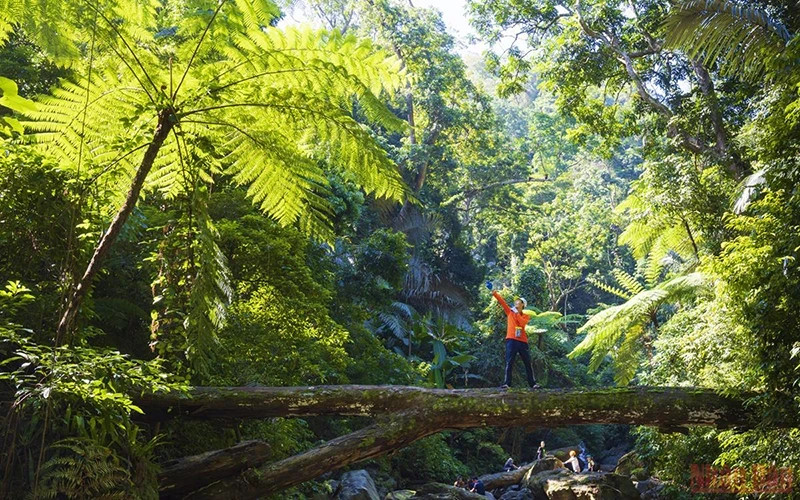On September 27 and 28, more than 500 government officials and experts from about 120 countries attended activities within the framework of World Tourism Day 2023, taking place in Riyadh, Saudi Arabia. The theme of this year's World Tourism Day is "Green Tourism and Investment", to call for promoting global cooperation for environmental protection and comprehensive and sustainable development of a "smokeless industry".
United Nations Secretary-General Antonio Guterres emphasised that the United Nations recognizes the vital need for green investments to build a tourism sector that delivers for people and the planet.
After a long gloomy period due to the COVID-19 epidemic, bright colours have reappeared on the global tourism picture. The United Nations World Tourism Organisation (UNWTO) said that 700 million tourists travelled internationally between January and July 2023, 43% more than in the same months of 2022.
UNWTO estimates that international arrivals reached 80% of pre-pandemic levels in the first quarter of 2023.
The tourism industry plays an important role in the economy, bringing in revenue, creating jobs and promoting cultural exchange. However, excessive tourism activities have negative impacts, such as causing environmental degradation, disrupting the lives of indigenous people and affecting the experiences of tourists themselves. Climate change is also a challenging issue for the tourism industry.
Destinations that attract many tourists in the Mediterranean are places heavily affected by harsh weather. Last summer, in Greece, thousands of tourists had to evacuate from the islands of Rhodes and Corfu, due to heat and forest fires. Rhodes International Airport became a reluctant campsite for tourists. Experts warn that if extreme weather phenomena continue, the European tourism industry will face significant challenges as tourists change their travel habits.
In the context of many challenges, sustainable tourism activities are increasingly encouraged to balance economic benefits with environmental and social responsibilities. Many countries around the world have invested in greening infrastructure, encouraging digital transformation, and preserving culture to develop sustainable tourism.
From 2024, the Bali administration has said that funds collected from a tax of 150,000 IDR (10 USD) per person, to be levied from all foreign tourists, will be used for waste management and cultural preservation programs.
In Japan, overcrowding with tourists leads to littering and traffic jams. To deal with this problem, the Kyoto city government proposed measures such as: ending the sale of “one-day bus passes”, which allow unlimited bus travel during the day, and promoting the use of “one-day bus/subway passes” to encourage subway use. The city also established a temporary luggage storage area at Kyoto Station, to facilitate visitors to visit attractions without carrying luggage.
Recently, Iceland plans to introduce a tourist tax to help protect its unspoilt nature.
Many other popular locations in Europe such as Berlin (Germany), and Amsterdam (Netherlands) have applied tourism tax. This is also a source of funding for public infrastructure projects, contributing to overcoming damage caused by crowds and supporting sustainable development initiatives.
The COVID-19 pandemic has changed thinking about tourism and shown that the world needs to build a tourism industry that is more flexible, sustainable, environmentally friendly, and more resilient to risks, and crises. According to United Nations Secretary-General Antonio Guterres, tourism is a powerful force for progress and mutual understanding; Investing in tourism means investing in a more sustainable future.
















